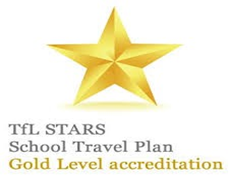EYFS and KS1 - Early Reading
In line with the Little Wandle program, pupils in Reception and KS1 partake in Reading sessions three times a week. These sessions support the pupils to progress within three domains of their reading fluency: decoding, prosody and comprehension. Within these sessions, pupils begin the week by becoming fluent with their reading book, exploring vocabulary and recapping the GPCs they will encounter in the text. Once they are familiar with the vocabulary, pupils develop their prosody skills, learning to read with fluency and expression. As the week draws to a close and pupils are confident with the text, they then focus on their comprehension of what they have read, discussing texts by summarizing key content, sharing likes and dislikes and drawing comparisons with own experiences or other known texts.
Pupils reading books are from the Little Wandle scheme and are aligned to each pupils reading ability. Pupils have continuity with their reading at home and school by utilising e-books, so that pupils can continue to become fluent and confident with their week’s reading book. As well as this, pupils take home additional reading books in line with their reading level. We encourage children to experience a range of genres and celebrate the pleasure to be found in reading, to support this, pupils also choose a book from the class book corner to share with their families, these are stocked with a wide range of books which reflect the diversity of our school community.
KS2 - Big Reading
From the Summer term of Year 2, and throughout KS2, we use an approach called Big Reading which teaches 4 key skills of reading through the exploration of high quality texts. Retrieve, Explore, Analyze and Deduce and Infer are the concepts taught across the phase. From Years 3 to 6, children are immersed in a range of stimulating texts such as Project Gadgetman, The Last Bear, Brightstorm and Clockwork to name a few. The spine of texts has been carefully curated to inspire and challenge our pupils, correlate with our school Curriculum Drivers, reflect the diversity of our community and society and provide an enriching context for the teaching of essential reading skills.
Children are actively encouraged to select books from both their book corners, which are stocked with a diverse selection of books, to enjoy in the classroom and at home. In lower KS2, many children are still progressing through the higher levels of reading bands to support the development of their fluency skills, and can enjoy a selection of engaging modern and classics books that have been matched to their reading levels.
Writing
Our writing curriculum at Valley is a book-led curriculum, in which pupils draw inspiration from their class text to stimulate their writing. Pupils writing is underpinned with a strong understanding of grammatical skills and knowledge which progresses in line with the National Curriculum as pupils move through the school.
Pupils are taught key writing skills in discreet Grammar lessons and then given opportunities to apply these skills in a range of contexts, learning to select the most appropriate form, features, vocabulary and tone for the audience and purpose of the piece. They are given high quality examples in the form of WAGOLLs (What a good one looks like) to support them in developing their use of vocabulary, understanding of the features of different texts and identifying effective writing techniques.
Through our book-led curriculum, children will have opportunities to draw upon their ongoing exposure to vocabulary from their own reading, shared reading and the wider curriculum to further support them in making appropriate language choices in their writing.
In order to become confident writers, we believe that pupils must become fluent in their transcription skills which in turn gives their brain more capacity to focus on their ideas and sentence structures. Alongside writing and grammar lessons pupils have discreet spelling lessons, once they have completed the Little Wandle phonics program, which support them in learning the key spellings and spelling rules laid out in the national curriculum. These spellings are also incorporated into writing lessons where applicable to further embed pupils’ learning. Pupils also develop their handwriting in line with the Nelson Thornes progression, which supports pupils in their letter formation, learning to join and developing a personal style once they have become fluent.
Intervention
As with anything, we all learn at different rates and in different ways. in EYFS and KS1 we focus on “keeping up, not catching up” and strive to provide support and early intervention to enable pupils to make the best progress they can. For those pupils who require additional reading and phonics support, we have a variety of small group or 1:1 interventions being run to support children with phonics, writing and reading and accelerate their progress. We begin by establishing the predominant area of need, whether it is the technicality of decoding, their fluency and stamina for reading, breadth of vocabulary or comprehension and intervene with a suitable programme of support. Pupils who need further phonic support and intervention as they move through the school are provided with this through the Little Wandle Rapid Catch-up program or writing-specific intervention
VPS Reading Spine
English Curriculum
.png)
.jpg)
